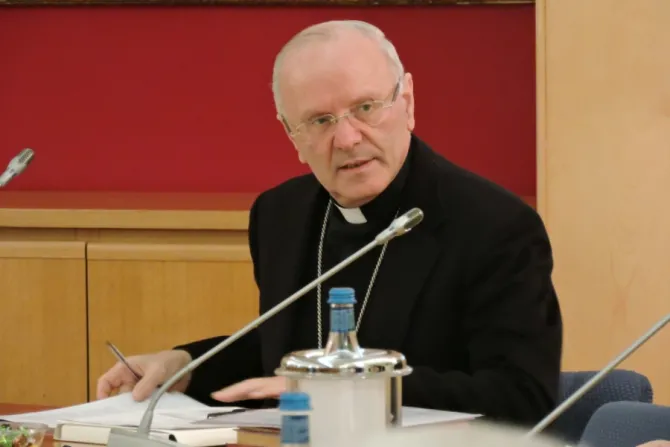Bishop Nunzio Galantino, president of the Administration of the Patrimony of the Apostolic See, pictured in 2016. | Alexey Gotovsky/CNA.
The Vatican has confirmed the sale of the luxury London property at the centre of a financial corruption trial.
A July 1 statement from the Administration of the Patrimony of the Apostolic See (APSA) reported that the Vatican sold the building on 60 Sloane Avenue in London to Bain Capital for £186 million ($223.6 million).
“The losses incurred with respect to what was spent on the purchase of the property were conferred to the reserve of the Secretariat of State, without in any way in this circumstance touching Peter’s Pence or the donations of the faithful,” it said.
The Secretariat of State began to purchase the building eight years ago as an investment property intended for development into luxury apartments. The Vatican spent about 350 million euros ($364 million) on the investment for a building that its previous owner had purchased for £129 million ($155 million), according to the Associated Press.
The circumstances surrounding the property’s purchase are the focus of an ongoing trial in the Vatican courts with accusations of fraud and embezzlement against 10 people.
Pope Francis ordered the removal of responsibility for financial funds and real estate assets, including the London building, from the Secretariat of State in November 2020.
In an August 2020 letter, the pope asked for “particular attention” to be paid to two specific financial matters: “investments made in London” and the Centurion Global investment fund. Pope Francis requested that the Vatican “exit as soon as possible” from the investments, or “at least dispose of them in such a way as to eliminate all reputational risks.”
Control of the secretariat’s real estate assets and investment funds was given to APSA. APSA received 16 initial offers to purchase the London property in September 2021.
In its most recent statement, APSA said that it worked with the real estate broker Savills in the sale “to ensure the transparency and the independence of the evaluation process” and that the Secretariat for the Economy followed every step of the process.
Source: CNA

